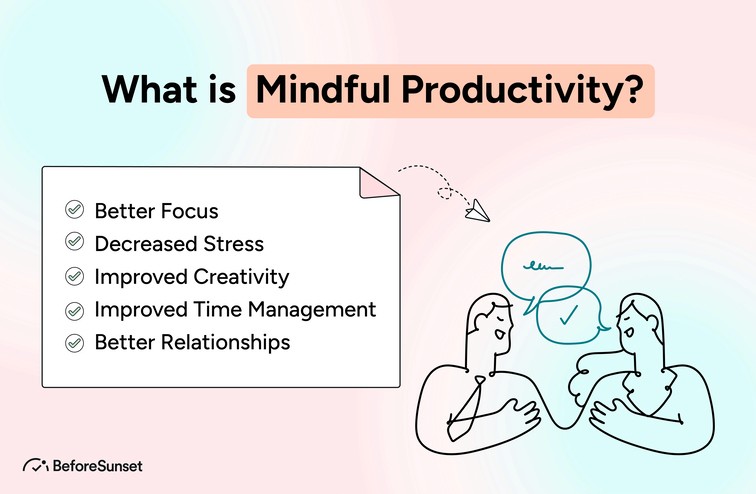“Productivity is being able to do things that you were never able to do before.”
Franz Kafka
Are you struggling to stay focused and productive at work? Are you feeling overwhelmed and stressed out? If so, it might be time to try mindful productivity. This guide will teach you how to achieve mindful productivity and improve your focus and productivity in the workplace.
More blogs you might enjoy:
Going Above and Beyond: 9 Synonyms for Going the Extra Mile at Work
Strategy Into The Productivity: The Ivy Lee Method
50+ Productive Things to Do at Home - The Ultimate List For Productivity Ideas
What Is Mindful Productivity?
Being completely present and involved in the activity at hand while simultaneously being conscious of one's thoughts, emotions, and bodily sensations is the discipline of mindful productivity. It entails practicing mindfulness at work so that one may pay attention to the here and now and take more deliberate actions.
The goal of mindful productivity is to complete tasks while also being conscious of one's mental and emotional state. Individuals can improve their focus and reduce distractions by practicing mindfulness, which can increase their productivity and efficiency.
Setting specific goals for each work, taking breaks to recharge, engaging in deep breathing exercises, and reducing distractions like email and social media alerts are some methods utilized in mindful productivity. Individuals can experience more balance, fulfillment, and accomplishment at work by fusing mindfulness and productivity.
According to research, even 10 minutes a day of mindfulness practice can have measurable advantages for people working across the board, from the CEO of the firm to the college intern. Michael Chaskalson, the founding director of Mindfulness Works Ltd., co-led research at Hult Ashridge Executive Education that revealed the advantages of regular mindfulness practice in the workplace.
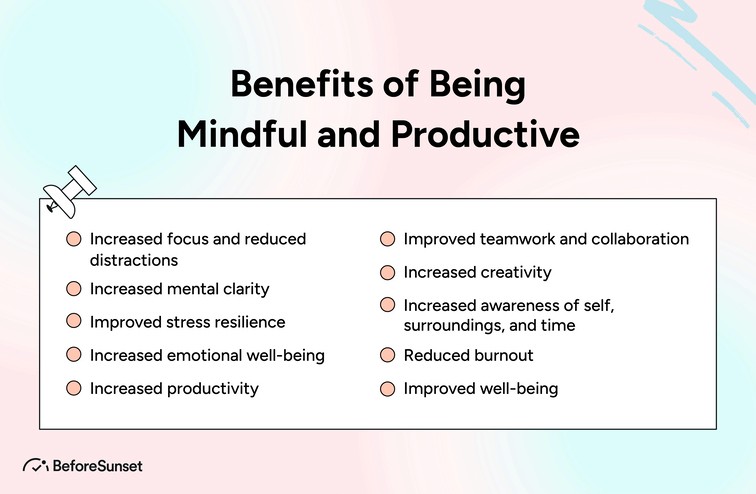
Benefits of Being Mindful and Productive | Being Mindful at Work
The pressure to be productive is greater than ever in the fast-paced world of today. Many people constantly rush from one task to the next without pausing to think or reflect about anything.
Yet maintaining one's physical or mental health does not have to come at the expense of being productive. In fact, adding mindfulness exercises to one's daily schedule can boost productivity and general wellbeing.
People can sharpen their focus, lower their stress levels, boost their creativity, better manage their time, and forge stronger bonds with coworkers by being mindful and productive. This essay will discuss the advantages of mindfulness and productivity and offer helpful advice for incorporating mindfulness exercises into one's daily work routine.
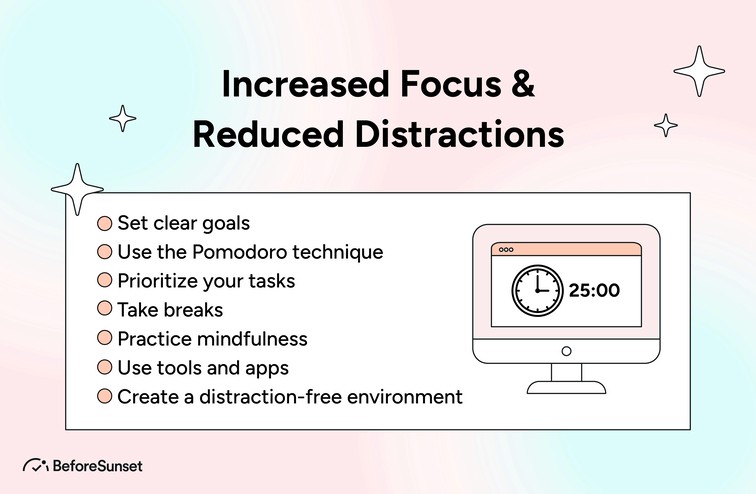
1. Increased focus and reduced distractions
Distractions such as emails, notifications, and social media posts are ever-present in today's world, making it difficult to maintain concentrate on tasks at hand. Mindfulness training, on the other hand, may teach us to ignore irrelevant information and concentrate on the task at hand.
The practice of mindfulness can help us become more self-aware and better able to regulate our emotions and mental states. This can aid us in maintaining concentration and lessen the negative effects of outside disturbances on our work. Being totally present increases our awareness of mental wandering and motivates us to take corrective action.
If we can reduce the number of interruptions, we should be able to work more effectively. Studies have shown that even little interruptions can have a major impact on how long it takes to complete a task. We might accomplish more in less time and enjoy greater satisfaction if we refrain from being sidetracked.
Concentration may be improved and distractions reduced by turning off alerts on phones and laptops, setting out certain times for focused work, and interspersing that time with brief rest intervals. By incorporating these strategies into our daily routines, we can potentially increase our productivity and well-being by paying more attention and reducing distractions.
Distractions such as emails, notifications, and social media posts are ever-present in today's world, making it difficult to maintain concentrate on tasks at hand. Mindfulness training, on the other hand, may teach us to ignore irrelevant information and concentrate on the task at hand.
Practicing mindfulness can help us become more self-aware and better able to regulate our emotions and mental states. This can aid us in maintaining concentration and lessen the negative effects of outside disturbances on our work. When we give our whole attention to the here and now, we are better able to detect when our thoughts have wandered and to take corrective action.
If we can reduce the number of interruptions, we should be able to work more effectively. Studies have shown that even little interruptions can have a major impact on how long it takes to complete a task. We may do more in less time and have a greater sense of accomplishment if we are able to concentrate and put aside distractions.
Concentration may be improved and distractions reduced by turning off alerts on phones and laptops, setting out certain times for focused work, and interspersing that time with brief rest intervals. By incorporating these strategies into our daily routines, we can potentially increase our productivity and well-being by paying more attention and reducing distractions.
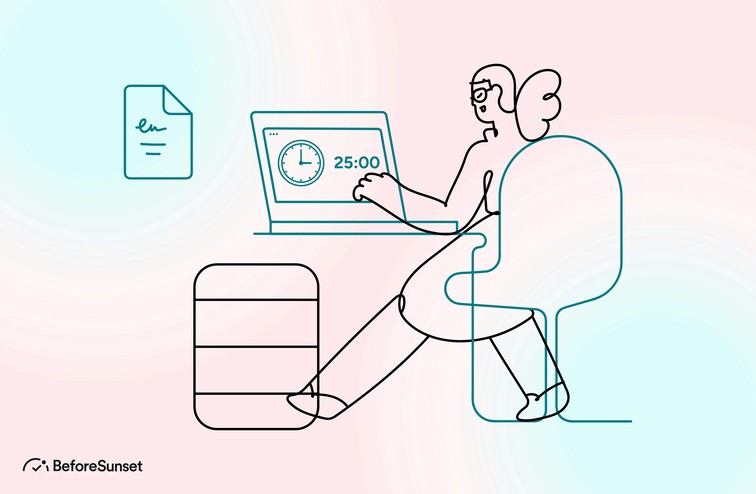
2. Increased mental clarity
Being attentive allows us to more easily examine our thoughts and feelings without being overtaken by them. This may result in enhanced decision-making and increased mental clarity.
On the other hand, when we are stressed or distracted, our thoughts can become disorganized and unclear, making it challenging to decide what to do or how to solve a problem. By engaging in mindfulness exercises, we may develop a condition of mental clarity that will enable us to make better judgments and operate more productively.
We may let rid of self-limiting ideas or unfavorable thinking patterns with the use of mindfulness. We may become more aware of these patterns and attempt to reframe them in a more constructive way by objectively monitoring our thoughts and feelings. More self-assurance, resiliency, and originality in our job may result from this.
Practice frequent meditation or mindfulness exercises, take mental breaks, and set aside time for introspection and self-care are all helpful strategies for improving mental clarity via mindfulness. We may enjoy the advantages of improved mental clarity, which results in higher productivity and general wellbeing, by adopting these activities into our daily work routine.
3. Improved stress resilience
Stress is an inherent aspect of life, and may have a substantial influence on our physical and mental health. However, by practicing mindfulness, we may improve our ability to manage stress and build resilience in the face of adversity.
Mindfulness can help us become more aware of our stressors and how they influence us. By monitoring our thoughts and feelings without judgment, we may learn to respond to stress in a more balanced and productive way. Instead of feeling anxious or overburdened, we could have a sense of calm and clarity that could aid us in making better judgments and taking helpful action.
Additionally, mindfulness techniques like meditation and deep breathing can heighten the body's response to relaxation, reducing the physical signs of stress like muscle tension and an elevated heart rate. Even if we are in a stressful situation, this can make us feel more at ease and in control.
Practical strategies for improving stress resilience via mindfulness include practicing frequent meditation or deep breathing exercises, taking pauses to rest and recharge, and engaging in physical activities such as yoga or tai chi that encourage relaxation and awareness. We can experience the advantages of increased stress resilience, which results in higher productivity and general wellbeing, by incorporating these practices into our daily work routine.
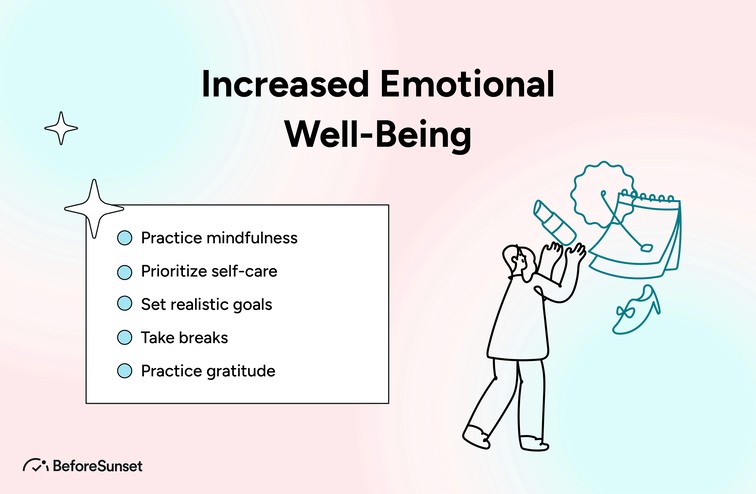
4. Increased emotional well-being
Staying alert helps us control our emotions and handle stress, which may have a big impact on our overall mood and well-being.
By observing our thoughts and feelings without passing judgment, we may enhance our self-awareness and emotional intelligence. This will allow us to respond to challenging events in a balanced and successful manner. We may learn to recognize when we are becoming worried or overwhelmed and take action to cope with these feelings before they spiral out of control.
Moreover, mindfulness approaches that encourage self-compassion and appreciation may help us build cheerful and pleased sentiments.
5. Increased productivity
Being attentive may help us concentrate our attention and manage our time more efficiently, which can increase our productivity and efficiency at work.
We may improve our awareness of and ability to control our thoughts and emotions by engaging in mindfulness practices. This can help us maintain our attention on the subject at hand and lessen the effect of outside distractions on our work. When we are completely engaged in the present, we are more likely to be aware of when our focus starts to stray and have the ability to take action to refocus.
Also, mindfulness can aid us in better time management and work prioritization. We may spend our time and resources more effectively and prevent becoming sidetracked by irrelevant chores or diversions by becoming more conscious of our objectives and priorities.
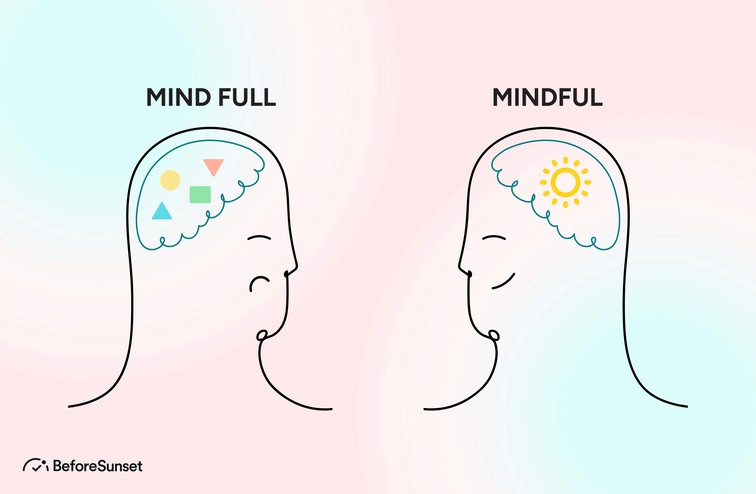
6. Improved teamwork and collaboration
Being effective and considerate may have a huge positive impact on teamwork and collaboration. Some ways that productivity and mindfulness may improve cooperation and collaboration are as follows:
Improved Communication: Mindfulness exercises can improve communication by encouraging people to become more aware of their thoughts and feelings. As team members are more aware of their own thoughts and feelings, they are better equipped to communicate properly and actively listen to others. As a result, there could be more insightful and useful discussions that also promote better communication and collaboration.
Enhanced Empathy: Mindfulness practices can also help team members understand and show more empathy. As people are more aware of their own thoughts and feelings, they are better able to understand the ideas and emotions of others. This might lead to a more positive and encouraging team atmosphere where team members are more inclined to work together to solve problems and achieve common goals.
Reduced Stress: Being busy often leads to stress, yet practicing mindfulness can help people manage their stress. When team members are less stressed, they are better able to communicate and collaborate effectively. By reducing tension and conflict among the team, this can promote a more productive and happy work environment.
Focus Improvement: People can improve their focus and attention by using mindfulness practices. When team members are more focused, they are better equipped to complete tasks and contribute to team goals. This might lead to improved efficacy and output as well as a feeling of achievement and joy.
Being aware and productive may often lead to better cooperation and collaboration by promoting effective communication, empathy, stress management, and attention. By incorporating mindfulness practices into their daily routine, team members may work together more successfully to achieve common goals and build a stronger and more positive team environment.
7. Increased creativity
Through practicing mindfulness, we may foster an attitude of curiosity and receptivity to novel experiences. This can help us look at things differently and come up with new approaches to solving issues.
Also, mindfulness might help us open up to our intuition and inner direction. By improving our awareness of our thoughts and feelings, we may find greater inspiration and creativity as well as contribute fresh insights to our work.
8. Increased awareness of self, surroundings, and time
By being more aware of our surroundings, we can catch chances and significant information that we might otherwise overlook. This may result in more original and creative problem-solving, as well as better judgment based on a fuller comprehension of the circumstances.
By being more conscious of our own thoughts and feelings, we can better control them and keep ourselves from getting distracted by unhelpful or negative thought patterns. Even in the face of difficulties or disappointments, this can help us maintain our motivation and focus.
Lastly, by increasing our awareness of time's passing, we may employ it more efficiently and steer clear of distractions and procrastination. We may utilize our time more deliberately and with greater intention if we establish clear priorities and goals.
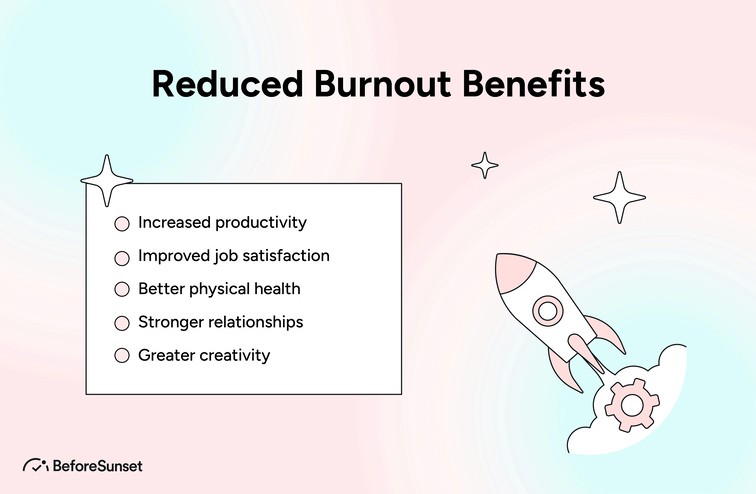
9. Reduced burnout
Burnout may be reduced with the help of productivity and mindfulness. Burnout is a state of severe and chronic stress-related emotional, mental, and physical tiredness. It frequently happens when people struggle to maintain a good balance between their job and personal lives because they feel overburdened by the obligations imposed on them.
People can learn to pay attention in the present moment rather than becoming sidetracked by regrets from the past or concerns for the future by engaging in mindfulness practices. Through lowering stress and raising self-awareness, mindfulness can give people more control over their thoughts and emotions. By doing this, people may control their stress levels more effectively and prevent burnout.
Furthermore, productivity may give people a sense of achievement and purpose, which can help lessen burnout. People may prevent feeling overwhelmed and have better control over their workload by defining realistic objectives and breaking them down into smaller, more doable activities.
In general, including productivity and mindfulness into one's daily routine can be a useful method to lessen burnout and enhance general wellbeing. In addition to mindfulness and productivity techniques, it's critical to keep in mind that preventing burnout necessitates a holistic strategy that includes self-care, social support, and good behaviors.
10. Improved well-being
The topics of productivity and mindfulness are frequently brought up in conversation. Being attentive entails being in the present and unbiasedly aware of your thoughts and feelings. The capacity to efficiently use your time and resources to accomplish your goals is referred to as productivity, on the other hand. Being productive and thoughtful has many advantages, but one of the biggest advantages is enhanced wellbeing.
Mindfulness training teaches us to put our attention on the here and now and let go of concerns about the past or the future. This can aid in lowering stress and worry, which are frequent contributors to ill health. We can respond to our emotions more effectively if we are more conscious of them thanks to mindfulness. We may increase our emotional intelligence and strengthen our interpersonal interactions by becoming more conscious of our thoughts and feelings.
Enhancing productivity is crucial for raising wellbeing. We get a sense of pleasure and success when we are productive, which can increase our self-esteem and confidence. This can then enhance our mental and physical wellbeing. We can focus our efforts on the things that matter most when we have clear objectives and priorities, which can help us feel less stressed and overwhelmed.
Also, productivity can aid in the development of a feeling of meaning and purpose in our life. We get a sense of contentment when we accomplish our objectives and move closer to our desires, which might enhance our general wellbeing. This is especially true if we can match our objectives with our beliefs and interests.
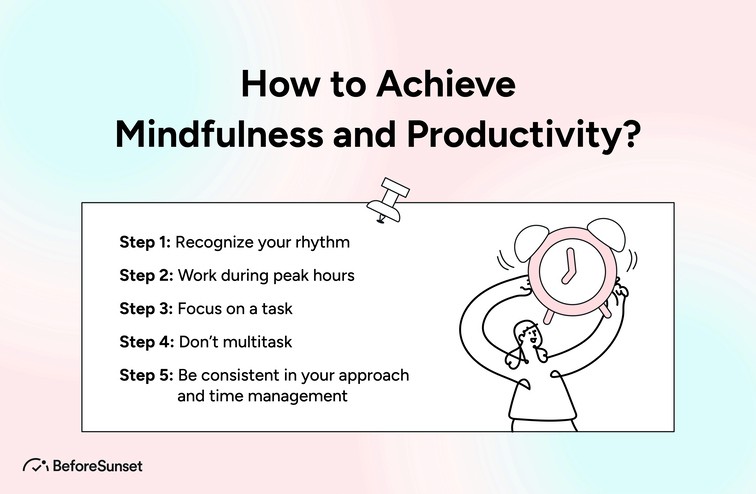
How to Achieve Mindfulness and Productivity?
We may acquire the abilities required to be focused, motivated, and present in the moment while accomplishing our goals by learning how to be aware and productive. In this section, we'll look at some doable advice and tactics for increasing productivity and mindfulness.
Step 1: Recognize your rhythm
Achieving mindfulness and productivity requires understanding your rhythm. Each of us has an own rhythm, which describes the daily cycles of our energy, attention, and focus. We may learn to work with our innate tendencies and maximize our productivity and awareness by knowing our rhythm.
For instance, some individuals are by nature more awake and concentrated in the morning, whilst others could experience an increase in energy in the afternoon or evening. We may plan our most crucial chores and activities during such times by figuring out when we are most productive, which can make us more successful and efficient.
Similar to how awareness of our rhythm may improve our mindfulness training. For instance, scheduling some mindfulness activities, such as meditation or deep breathing exercises, can help us start the day in a peaceful and focused state if we tend to feel more worried or nervous in the morning.
Start by observing your natural rhythms of energy, focus, and attention throughout the day in order to find your rhythm. Keep track of the times you are most awake and productive as well as the times you tend to be sleepier or distracted. After you've determined your rhythm, make an effort to schedule your most crucial chores and mindfulness exercises during your most focused and productive periods.
Step 2: Work during peak hours
For many people, it can be difficult to stay focused and productive throughout busiest times of the day. But, there are several tactics that can assist you in achieving both at once. Being totally present and focused on the job at hand is the practice of mindfulness. It entails being conscious of your ideas, feelings, and bodily experiences. On the other side, productivity is the capacity to successfully perform activities and realize objectives.
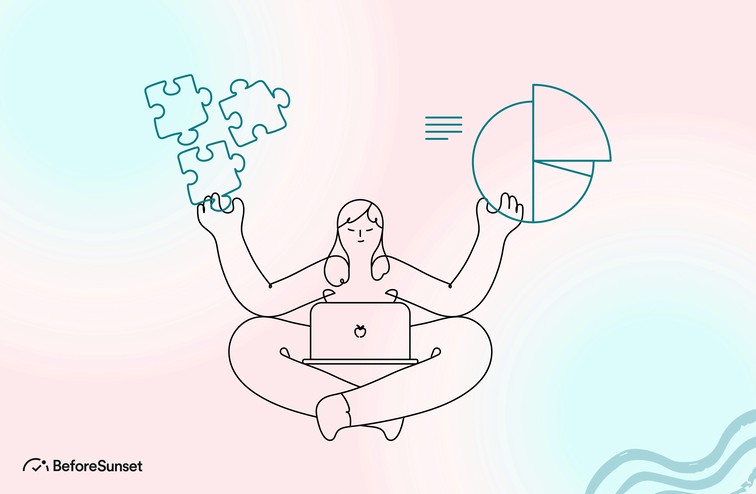
Step 3: Focus on a task
In today's fast-paced society, having a mindful attitude is becoming increasingly significant. It's crucial to keep your attention on the activity at hand if you want to practice mindfulness. This entails being acutely aware of what you are doing, totally immersed in the task at hand, and conscious of your thoughts and feelings.
It can be challenging to concentrate on a task, particularly if you are easily distracted or have a lot on your plate. Breaking down huge activities into smaller, more manageable ones is one method to increase productivity and mindfulness. This prevents you from being overwhelmed by the entire endeavor and enables you to concentrate on one issue at a time.
Eliminating distractions is another method for increasing productivity and attention. Finding a quiet area to work in and shutting off your phone and email are required. You may concentrate more intently on the subject at hand and be more productive by blocking out outside distractions.
Prioritizing your duties and setting goals are equally crucial. This entails prioritizing your duties according to their importance. Setting objectives may give you a feeling of direction and purpose that helps keep you motivated and focused.
Goal-setting is crucial, but so is taking breaks and refueling your energy. This is taking quick rests over the course of the day to stretch, practice meditation, or just take a few deep breaths. By taking pauses, you can recharge your batteries and refocus, which will ultimately make you more productive.
Step 4: Don’t multitask
Multitasking has become commonplace in today's fast-paced culture. People commonly strive to accomplish many tasks at once in order to boost productivity and save time. Yet, this method may be unproductive and harmful to our attention and production levels.
When we attempt to multitask, our attention is split, making it hard for us to fully concentrate on any of the tasks at hand. As a result, we generate lower-quality work and make more errors. Furthermore, attempting to manage too many duties at once can lead to stress and concern, which is another adverse effect of multitasking.
Mindfulness, on the other hand, emphasizes the necessity of being entirely present and absorbed in the task at hand. Being attentive enables us to devote our whole attention to what we are doing and to focus on the nuances and details that might otherwise pass us by. We may create higher-quality work, make fewer mistakes, and endure less stress if we use this strategy.
Maintaining single-task concentration is essential for mindfulness and productivity. Prioritizing our responsibilities and handling them one at a time is better to striving to complete many duties at once. This allows us to concentrate totally on each task at hand, do it more quickly, and deliver better results.
Taking breaks between tasks is another method for enhancing alertness and productivity. If we take a few minutes to unwind, decompress, and recharge, we will be able to face the following tasks with renewed enthusiasm and concentration. It can also help us maintain our productivity levels throughout the day and avoid burnout.

Step 5: Be consistent in your approach and time management
The secret to productivity and mindfulness is consistency. A technique or habit becomes simpler to sustain and incorporate into your daily routine when you constantly use it. Particularly when it comes to time management, this is crucial. You may establish a feeling of order and control over your day by routinely allotting time for various chores and activities, which can lower stress and boost productivity.
Setting defined priorities and goals will help you become more consistent in your approach and time management. Set aside specified periods each day to work on the chores and activities that are most essential to you in the beginning. A calendar or to-do list can be used for this. After a schedule has been formed, follow it as closely as you can. Your schedule or daily routine might need to change for this, but with time and work, consistency will get simpler to maintain.
Avoiding multitasking is another crucial element of gaining mindfulness and productivity via consistency. While it may seem that concentrating on numerous things at once would help you accomplish more, research has shown that multitasking actually decreases productivity and raises stress levels. Instead, concentrate on finishing each work while giving it your entire attention. This will help you be present and conscious in the moment as well as enhance the quality of your job.
For mindfulness and productivity, consistent self-care is just as crucial as time management and work prioritization. Taking breaks during the day, exercising, and participating in mindfulness or meditation are all effective ways to lower stress and improve attention. Be careful to schedule these things into your day and make a commitment to performing them regularly.
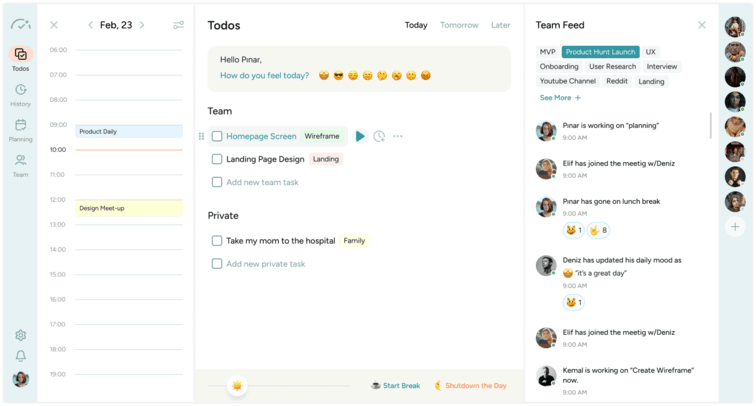
What is the Best Productivity Tool for Mindfulness?
Mindful productivity can be enhanced through the use of productivity apps that incorporate mindfulness techniques. According to a survey conducted by RescueTime, a time-tracking and productivity app, 67% of respondents reported that they use technology to support their mindfulness practice, while 70% said that technology helps them stay organized and productive.
There are various productivity apps that can assist in practicing mindful productivity, such as BeforeSunset. These apps utilize techniques of mindfulness to help users stay focused, reduce distractions, and increase productivity.


